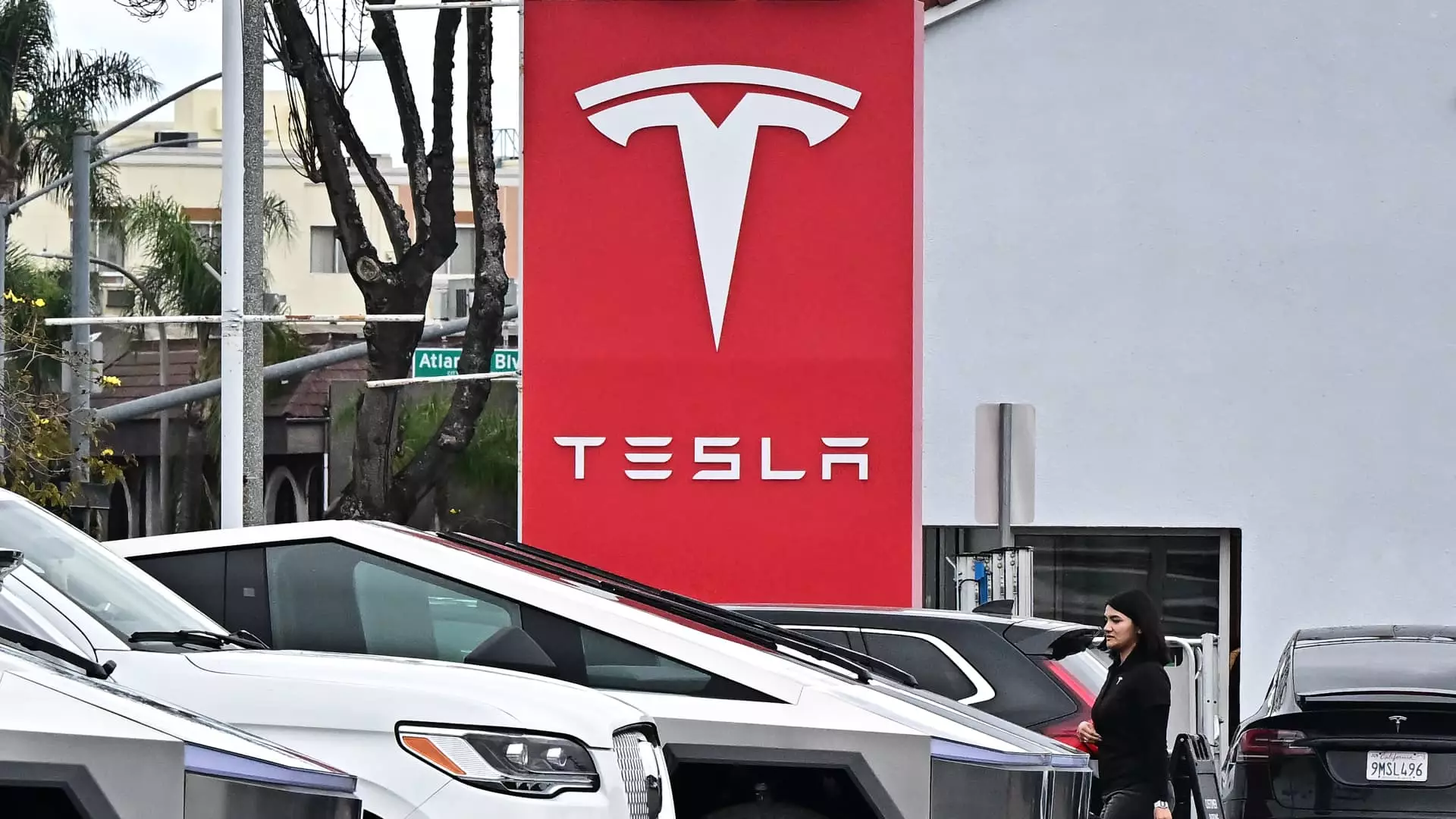In recent months, a noticeable shift has emerged in analysts’ perceptions of Tesla, one of the most iconic and discussed companies in the electric vehicle (EV) market. As trade tensions heighten and economic uncertainties loom, major Wall Street players have revised their outlook on Tesla, indicating a more bearish sentiment. Analysts from Goldman Sachs, UBS, and Mizuho have all slashed their price targets for Tesla’s stock, highlighting serious underlying issues that could impact the company’s trajectory moving forward. This isn’t merely a short-term blip; rather, it points to a system that may no longer favor the previously turbuently-growing EV manufacturer.
Trade Wars and Tariff Concerns
The looming trade tensions, particularly with China, pose a significant threat not just to Tesla, but to the automotive sector as a whole. The potential for tariffs on Chinese imports is more than just a political maneuver; it has real implications for manufacturing costs, supply chains, and ultimately, the pricing structure of electric vehicles. UBS analyst Joseph Spak has voiced these concerns, mentioning that “the trajectory of earnings for TSLA remains too high” given the precarious geopolitical environment. With the potential for tariffs impacting Tesla’s energy arm, the risk of eroding profits is substantial. This could undermine Tesla’s longstanding position as a leader in the burgeoning sectors of electric vehicles and renewable energy.
Consumer Sentiment in Freefall
It’s crucial to examine the strain on consumer sentiment as well. Investors are displaying increasing unease regarding economic conditions, and this worry extends to potential auto demand. The drop of over 33% in Tesla’s stock this year signals more than just market fluctuations; it reflects a fundamental shift in consumer confidence. Amid rising prices and concerns over inflation, most average consumers are likely to reconsider investments in high-ticket items like electric vehicles. This shift in buying behavior directly threatens Tesla’s sales, particularly as it faces competition in a market that is becoming increasingly crowded. Competitors are ramping up their production to vie for consumer interest, which poses a double threat to Tesla by affecting market share and pricing strategies.
The CEO Factor: Elon Musk’s Political Engagement
Additionally, Tesla’s CEO, Elon Musk, has taken center stage in national politics, aligning himself with the Trump administration, a move that has garnered backlash in various sectors of society. The political landscape has the potential to influence consumer perception and corporate strategy significantly. With rising scrutiny regarding Musk’s public persona and statements, investors may question whether Tesla’s continued success can withstand this politically charged environment. For a company that once enjoyed a reputation of being visionary and authentic, Musk’s political entanglements could fray that image, ultimately affecting Tesla’s ability to drive sales and engender consumer loyalty.
A Disrupted EV Policy Landscape
The evolving U.S. EV policy landscape compounds these challenges. Investors are rightly concerned about the future of incentives and regulations that could impact Tesla’s market dominance. While some analysts maintain a bullish stance, suggesting Tesla’s long-term potential remains robust, the reality is that regulatory changes could hamper the company’s operational strategies. The balance of federal support for electric vehicles is uncertain, particularly with shifting political tides. Analysts suggest that these external factors can easily overshadow any advancements made through Tesla’s work in artificial intelligence or energy innovations.
Confronting Stiff Competition
Lastly, the competitive landscape in the electric vehicle market is hotter than ever. Tesla’s once-unassailable position is under significant threat from a slew of traditional automakers and new entrants into the EV space. With companies like Ford and General Motors ramping up their electric vehicle production, consumers have more choices than before. Investors need to recognize that the euphoria surrounding Tesla’s early successes is dimming. The car makers once derided as laggards are now on the fast-track, leveraging their established brand presence and vast resources to challenge Tesla’s market share.
It’s clear that while Tesla has long positioned itself as the exhilarating front-runner of the electric vehicle revolution, the combination of these factors—the pressing relevance of geopolitical tensions, waning consumer interest, Musk’s controversies, unpredictable regulatory changes, and fierce new competitors—paint a compellingly worrying picture for investors. The expectation of continued growth, once seen as a given, is now deeply fraught with uncertainty.

